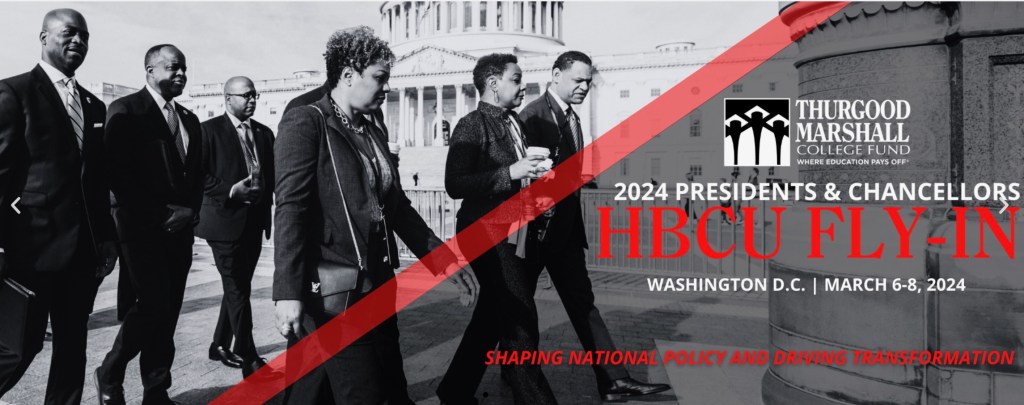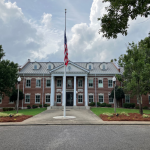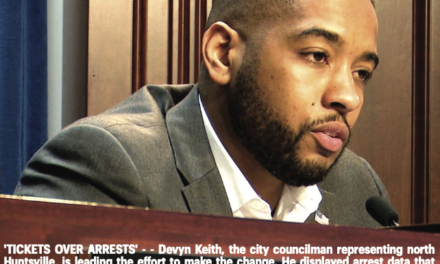By Aria Brent
AFRO Staff Writer
abrent@afro.com
The Thurgood Marshall College Fund (TMCF) is gearing up for the eighth Presidents and Chancellor’s HBCU Fly-In on Capitol Hill from March 6th to March 8th. This three day event is focused on bringing together HBCU administrators, members of congress and policy makers to discuss the issues that are directly affecting the nation’s 107 HBCUs.
Since its conception in 2017 this annual event has been attended by presidents, vice presidents and agency secretaries. TMCF has 55 public HBCUs in their network of partnering schools, however for this event they’ll be inviting unaffiliated HBCUs as well to ensure that all of these historical institutions benefit from this event. In addition to the many HBCU administrators and political figures that are invited to this event, a series of our nation’s top business executives are invited to help create more opportunities for HBCUs.
“From the standpoint of engaging with top CEOs in the United States, this is an opportunity for potential partnerships. It’s an opportunity to build capacity at our institutions, and put them in a position to educate and train our students so that they’re prepared to take on the jobs of tomorrow,” stated David Sheppard, chief business and legal officer for TMCF.
Sheppared went on to further explain some of the events that have been happening within the last four years that have brought an increase in attention for HBCUs and how that has created a space for more policy to be created for the betterment of them. Things such as the election of U.S. Vice President Kamala Harris has provided a space for HBCUs to be represented and recognized like never before. While all eyes are on HBCUs, TMCF has been using this newfound exposure to highlight issues such as a lack of sourcing institutional infrastructure.
For those who have attended an HBCU, it’s no secret that many of these institutions–especially public ones, are severely underfunded, under-resourced and undermined. Sheppard explained that this issue has even affected land-grant institutions, despite the required federal laws that have been put in place for their protection.
“Our institutions have largely been under-resourced. In fact, the public institutions have never been supported by their state’s in the way that the flagship institutions– which are predominantly White institutions have been,” explained Sheppard. “It is a particular issue of significance as it relates to our land grant institutions.There is a set of HBCUs that are land grant institutions and they have never been treated similarly by their states despite the requirements of federal law.”
There’s a total of 21 land grant HBCUs including Virginia State University (VSU). Founded in 1882, VSU is the fourth oldest institution within the Virginia commonwealth and despite their lengthy existence they’ve never been funded in the same way public predominantly White institutions throughout the state have been. VSU’s president, Makola Abdullah spoke with the AFRO about why events like the TMCF fly-in are necessary and how we can further promote our HBCUs.
“It is an opportunity for us as presidents to advocate for our respective institutions as a whole at the federal level. It’s a way for us to really make an impact for HBCUs in Washington,” Abdullah explained.
Abdullah truly believes in HBCUs and what they have to offer. Noting that he thinks of them as some of the best institutions in the country, the head trojan in charge explained how he thinks the Black community can support and promote HBCUs even without attending them.
“In order for our HBCUs to be around, we all have to support them no matter where we went to school. I don’t believe that every young person should go to an HBCU but I believe that every young person should visit an HBCU before they make a choice. They should put our institutions up against any other institution,” stated Abdullah. “Every Black person should donate to an HBCU because if our institutions go away, then we don’t have a choice to choose HBCUs. Right now we have the freedom to not choose an HBCU. That freedom should always be there, whether people choose to go or not.”
It seems as though the choice to attend an HBCU is one that is being chosen at an all time high these days. Sheppared shared that there’s been a 44 percent increase in applications submitted to HBCUs within the last year, even before the Supreme Court’s decision to overturn affirmative action. It was also reported by the National Center for Education Statistics that between 2020 and 2023 there was a seven percent increase in HBCU enrollment.
As HBCUs continue to pique the interest of young scholars all across the nation and enrollment increases, TMCF is continuing to provide opportunities to the students at these special institutions of higher learning. From scholarships to internships, fellowships and jobs, TMCF is showing just how much your education can pay off when attending an HBCU.
“I started this program when I was a junior in college and since then the program has offered me the tools I needed to prepare me for being an educator. I feel that this program has jump started me into my profession and it equipped me with the qualities that I wasn’t necessarily learning from my program but I was in need of,” Kaylee Pinson stated, a fellow in the TMCF teacher quality and retention program and an alumna of Morgan State University.
Pinson recognizes the need for an event like the fly-in and is hoping the policies created and discussed will help HBCUs further develop secondary education programs and fix issues like the lack of housing on many campuses.
“I would love to see them create some policies that can secure funding for more secondary programs. More HBCUs deserve the chance to offer more masters and doctoral programs,” Pinson exclaimed. “Housing is also a really big issue. There isn’t enough of it or the housing provided is in need of some major renovations so I hope they focus on that as well, especially with the increase in enrollment.”
The post Thurgood Marshall College Fund welcomes HBCU administrators to Capitol Hill for policy discussions appeared first on AFRO American Newspapers.











